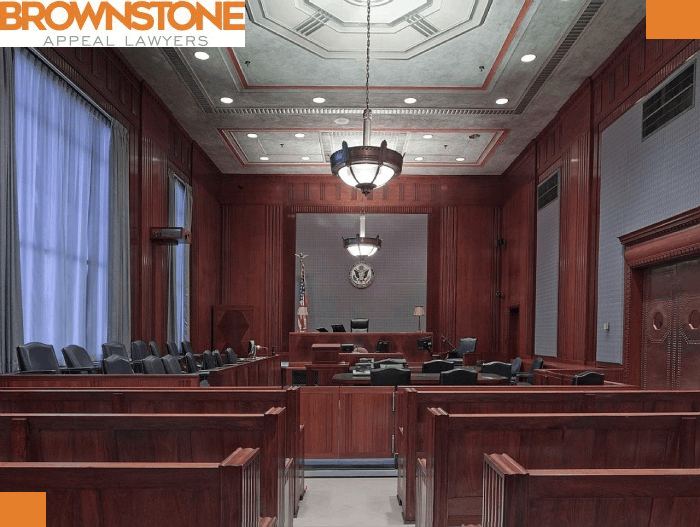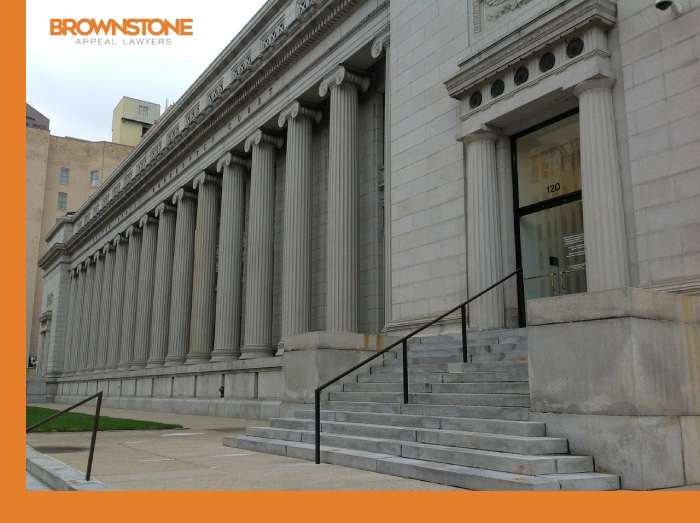Introduction
When an individual has been convicted of a crime, there is often a plan within that individual’s legal team and support network to dispute the outcome of the case.

There are a couple of ways to dispute a conviction, which includes a direct appeal and a writ of habeas corpus. For individuals who are not experienced in criminal law, the difference between the two processes can be extremely confusing, and it can be difficult to determine which process to approach in a given case.
Let us examine several key pieces of information about both legal processes. In this article, we will cover what a direct appeal is, what a writ of habeas corpus is, how each process works, what each process covers, and the main differences between the two approaches.
This way, convicted individuals and their support networks can become better informed about their unique circumstances and which legal process they should take for the best possible result.
What is a Direct Appeal?
A direct appeal allows a convicted individual to be seen by an appellate court in order to try proving that the court that handled the case made a mistake during the proceedings. During an appeal, a person convicted of a crime and their legal representative tries to point out intentional or unintentional wrongdoing on the court’s behalf.
The end goal of a successful appeal is to be granted a new trial.
A direct appeal must involve issues within the trial records, meaning that only court reports or court documents can be included as part of the appeal. Additionally, only preserved issues can be appealed. This means that the defense attorney had to object or file a written complaint about the issue during the trial.
During an appeal, the convicted individual and their legal representative submit written briefs that clearly explain the issues discovered in the court records. The court will examine the briefs and the court records before approving or denying the appeal.
An individual can appeal a record even after pleading guilty to an offense, so long as the issue was presented prior to the plea, and the court allows that individual’s right to appeal.
How Does the Appeal Process Work?
To file an appeal, a convicted individual should first hire an appellate attorney, and then with that attorney’s assistance, file a Notice of Appeal. From there, the individual and his or her legal team will prepare their Record on Appeal, carefully scan through court records, and try to locate pieces of information that can be disputed.
The individual and his or her legal team will then prepare appeal briefs, which will be the key pieces of information that the panel of judges will consider when examining the appeal.
While oral arguments used to be a significant part of the appeals process, they’re typically not very common anymore. Most of the case is examined through written information.
What Can Happen After An Appeal?
After a convicted individual files an appeal and the appellate court examines the findings, one of several outcomes can occur.
- The convicted individual may be granted a new trial.
- The convicted individual may be granted a new sentencing hearing.
- The convicted individual may have their sentence affirmed.
- The conviction may be overturned.

What is a Writ?
In general, a writ of law is an order that’s written and issued by a body with legal jurisdiction, usually a court. These documents typically command a party to take a certain action or abstain from a certain action.
A Writ of Habeas Corpus following a conviction is a court order that demands an imprisoned individual be delivered to the court, as well as confirming a valid reason for having the imprisoned person in custody. During this procedure, incarcerated individuals and their legal representatives are able to dispute the legality of the person’s confinement and present new information to the court.
Writs of Habeas Corpus are filed when a conviction is deemed final, and are often filed as a last resort once appeals have been exhausted, or when a direct appeal is not available.
These documents can be used to call for an examination of case facts, witness statements, attorney affadivits, and many more pieces of information that go beyond standard court records.
Legal Writ Types
While a Writ of Habeas Corpus is one of the most common writs used in the court system, there are several other writs that are used in a variety of legal cases. For example, Writs of Certiorari and Writs of Mandamus.
- Writ of Certiorari is a writ that orders a court to provide records from a case so that a higher court can review the facts. Like Habeas Corpus, these writs can be used when appeals have failed.
- Writ of Mandamus is an order from a higher court that requires a public official to act within the powers of their position, such as performing actions that they’re legally required to perform.
- Writ of Quo Warranto demands that an official named within the writ explains how and why they’re authorized to exercise an action or claim a certain power.
- Writ of Prohibition is a legal demand for a subordinate or lower tribunal to cease performing an action it does not have authority to perform.
These writs are the most commonly used documents when it comes to a convicted individual disputing their conviction, however, these writs are often referred to by other titles in addition to their official name.
A writ like those mentioned above may also be referred to as a writ of appeals, writ petition, a habeas corpus appeal, or a writ of certification.
How Does Habeas Corpus Work?
A habeas appeal works by requesting that a court looks into the facts surrounding an individual’s imprisonment in order to determine whether he or she is behing held illegally or put on probation or parole illegally.
An individual who would like to utilize a writ of habeas corpus must first file a petition that is signed by either the individual himself/herself, or someone acting on that person’s behalf. If the court finds that individual is within that court’s jurisdiction, the petition will be examined.
Should the court decide upon examination of the facts and/or new evidence that the individual is being held illegally, the court can order the release of the individual or another solution to be reached (though release is usually the goal).
Unlike standard criminal proceedings, the habeas corpus process places the burden of proof on the petitioner rather than the court.
Additionally, there are two types of habeas corpus processes, state level and federal level. The federal habeas corpus laws offer a prisoner a way to seek federal help to determine whether his or her conviction is constitutional, but this is done after the convicted individual has presented his or her case to courts at a state level.
What Are the Key Differences?
Though a Writ of Habeas Corpus and a direct appeal are both used to help convicted individuals protect themselves from legal flaws, there are a few key differences between the two.
For one, appeals are intended to correct errors that were made during an individual’s trial within the confines of court records.
A Writ of Habeas Corpus can also be used to point out court errors, but can cover information beyond the court records, including new evidence that the court has not yet seen.
Direct appeals involve deadlines throughout the steps of the process (usually 30-days for each) while the writ system does not usually require any deadlines.
A direct appeal is filed through appellate court, while the habeas corpus process is filed and managed through the court of conviction.
Direct appeals are usually the first step toward disputing the outcome of a criminal case, and a convicted individual may have the right to appeal their conviction more than once.
On the other hand, a writ of habeas corpus is often seen as a last resort to dispute the legality of the individual’s conviction and subsequent incarceration. These measures are usually taken when immediate relief is needed (such as in cases of illegal imprisonment), or the individual is not given the right to appeal a decision of the court.
Conclusion
Disputing a conviction can be a challenging, demanding process, so it’s necessary when appealing an outcome or utilizing a writ of habeas corpus to work with an experienced legal professional. By ensuring that you or a convicted loved one are protected with legal representation, you’re more likely to proceed correctly and achieve relative success at the end of the process.

Let Brownstone Law provide you with professional legal counsel during your appeal. Our attorneys have decades of experience when it comes to navigating the complexities of appellate court, and as such, we can represent you throughout the entire process. We welcome you to contact us online, or at the phone number corresponding with your state listed at the tip of the page.
The post
Blog first appeared on
.
source
https://www.brownstonelaw.com/blog/difference-between-an-appeal-and-a-writ-of-habeas-corpus/


